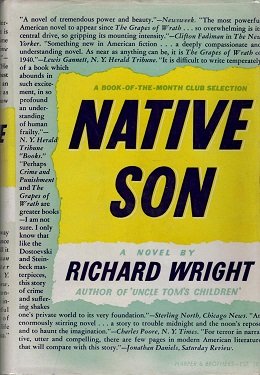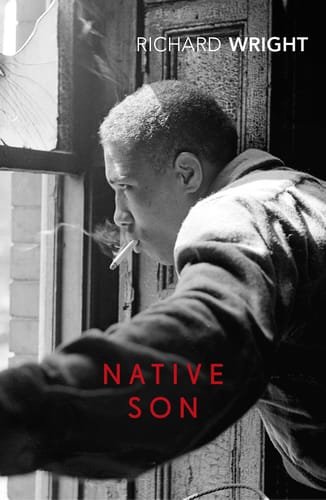
Richard Wright's "Native Son" is a powerful and haunting exploration of race, poverty, and violence in 1930s America. Set in Chicago, the novel follows the life of Bigger Thomas, a young African American man who becomes entangled in a web of fear and brutality that ultimately leads to tragedy.
At its core, "Native Son" delves into the psyche of Bigger Thomas, a character who grapples with the oppressive forces of racism and poverty. Wright skillfully portrays Bigger's inner turmoil, highlighting the psychological effects of living in a society that systematically marginalizes and dehumanizes him. Through Bigger's experiences, Wright exposes the harsh realities faced by African Americans during this time period, shedding light on the complexities of race relations in America.
One of the most striking aspects of "Native Son" is Wright's unflinching portrayal of violence. From the opening pages, the novel is steeped in a sense of foreboding, as Bigger's actions become increasingly desperate and destructive.
Wright does not shy away from depicting the brutal consequences of Bigger's actions, forcing readers to confront the harsh realities of poverty and oppression.
Throughout the novel, Wright explores the intersection of race and class, highlighting the ways in which economic disenfranchisement exacerbates racial tensions.
Bigger's struggles are not just a result of his race, but also of his poverty and lack of opportunity. By examining the complex interplay between race and class, Wright offers a nuanced critique of American society, challenging readers to confront their own complicity in perpetuating systemic inequality.

In addition to its exploration of race and class, "Native Son" also grapples with themes of identity and agency. Bigger's journey is one of self-discovery, as he grapples with questions of morality and responsibility in the face of overwhelming societal pressure.
Wright creatively captures the inner conflict of a young man torn between his desire for freedom and the constraints imposed upon him by society.
One of the most compelling aspects of "Native Son" is its portrayal of Chicago as a character in its own right.
Wright vividly depicts the gritty urban landscape of 1930s Chicago, imbuing the city with a sense of menace and despair that mirrors Bigger's own internal struggles. From the squalid tenements of the South Side to the opulent mansions of the North Side, Wright paints a vivid picture of a city sharply divided along racial and economic lines.
"Native Son" is a timeless masterpiece that continues to resonate with readers today.
Wright's searing indictment of racism and injustice remains as relevant as ever, reminding us of the enduring legacy of America's troubled past. By shining a light on the darkest corners of the human experience, Wright challenges us to confront our own prejudices and biases, urging us to strive for a more just and equitable society.

Lastly, "Native Son" is a tour de force of American literature that deserves a place on the shelf of every reader.
Through its vivid characters, evocative setting, and powerful themes, Richard Wright's masterpiece offers a searing critique of race, poverty, and violence in America.
As relevant today as it was when it was first published, "Native Son" is a haunting reminder of the enduring power of the human spirit in the face of oppression.

Thanks for reading, Zeegirl 🌻